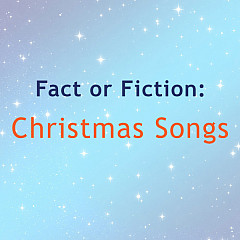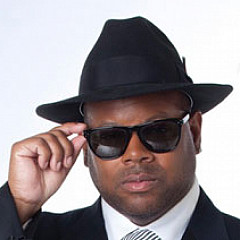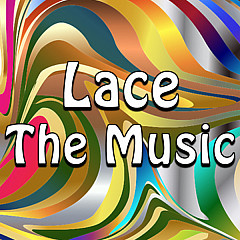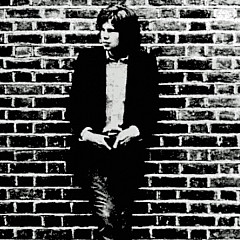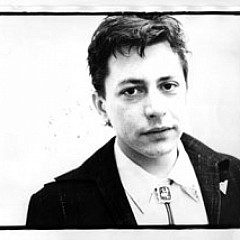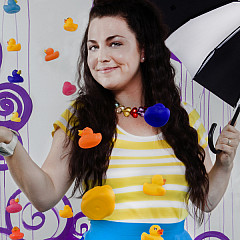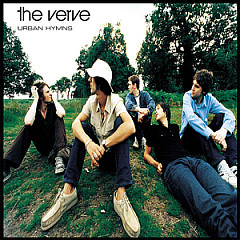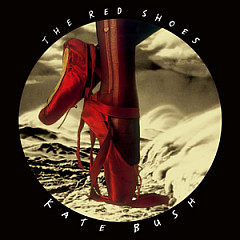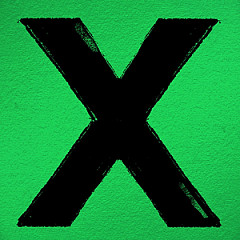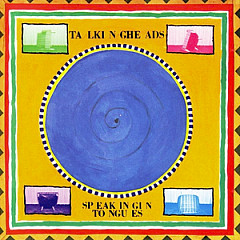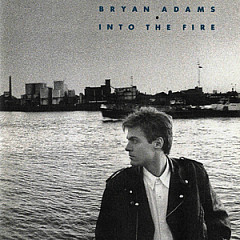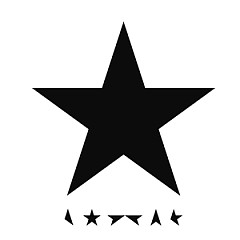
My interview with hip-hop artist MC Yogi was unlike any I've ever done before. After it was over, I hung up the phone and sat a while in silence. The first coherent thought that floated to the surface of my awareness did so only very slowly. Whoa. I think MC Yogi just blew my mind.
Not many people are truly comfortable in their own skin; truly at peace with themselves. You can feel it when you talk to someone who is. Their easiness with themselves helps you feel the same, which can be a strange and almost jarring experience, because the natural question after such an exchange is, "If this feeling of authenticity is so new to me, then what the hell am I usually being?"
The calm sense of self that Yogi exudes is a big part of what endears him to fans. It comes through not only in conversation, but in his music. The "MC Yogi" thing isn't a shtick, nor is it meant to be ironic. MC Yogi, real name Nicholas Giacomini, is not only a hip-hop artist and cartoonist, he's also a yogi - as in an actual, no-shit yogi.
Yogi came out of San Francisco, the same geographical incubator that produced the Grateful Dead. In fact, as the gods of music would have it, he started his path with Larry Schultz, the same yogi who toured with and taught the Dead in the '90s (it was Bob Weir who dubbed Schultz's brand of yoga "Rocket Yoga"). This connection isn't merely an interesting aside - in many ways MC Yogi takes the spirit of the Grateful Dead into the world of hip-hop, albeit substance-free.
Early in their relationship, Schultz told Yogi that he had to "find his own voice," both musically and personally. It took Yogi a long time of searching and experimenting to achieve that, but all signs point to his success in that endeavor.
What Yogi raps and sings about is very different from what's normally found in the world of hip-hop, except in those rare tracks such as the Beastie Boys' "Bodhisattva Vow," which was a direct and significant inspiration in Yogi's life, both spiritually and musically.
A cynic may say that Yogi has simply found a unique niche in which to build an audience in a climate that is very hard on musicians. If that's the case, though, then Yogi is one hell of a talented and dedicated actor.
One of the most interesting points in our conversation came when we were talking about "Bodhisattva Vow." I was caught up in the spiritual stuff and tried to discuss the rather heavy Buddhist mission of "easing the suffering of the world," which Yogi seemed to be saying was one he'd adopted himself. Though it doesn't come through precisely in the written interview, Yogi sort of abruptly changed gears, seemingly unwilling to lay claim to such grandiose ambitions.
I got in touch with Yogi to talk about his music in general, but particularly to talk about his collaboration with Matisyahu, "Heaven Is Here."
MC Yogi: Hey, Jeff, how's it going man?
Songfacts: It's very good, how are you?
Yogi: Fantastic man. Where are you calling from?
Songfacts: Tacoma, Washington.
Yogi: Oh cool, West Coast, not so far.
Songfacts: You were in Seattle recently, weren't you? I'm about half an hour south of Seattle.
Yogi: Oh okay, I know exactly where you are. Yeah, we love the Northwest. I love it up there.
Songfacts: You're touring right now? Your next show is in Chicago I think?
Yogi: Yeah, I'm heading over to Chicago this weekend for a festival, and then we're going to Sri Lanka pretty soon, too.
Songfacts: Will that be your first time there?
Yogi: First time, yeah. I'm super stoked. I've been to India a lot of times, but not Sri Lanka.
Songfacts: Not many people get that opportunity.
Yogi: Yeah, it's pretty... blessed. For some reason, God has put me in this place where I get to travel to some amazing places and hang out with some incredible people, so I feel very lucky.
Songfacts: This was a question I was going to bring up later, but this train of talk feeds into it so I'll hit it now. You have very much a spiritual message. In the pursuit of that, you're becoming successful and famous, and I'm curious if that creates any tension, like the temptations to the ego. It seems like you're almost walking two paths.
 Yogi: Yeah, well, that's a great observation and I'm really fortunate because I have a lot of people in my life who have known me before I was MC Yogi and I'm really blessed to have an amazing wife and this awesome family, and I come from a working-class background. I'm the son of an immigrant on my mom's side, and my dad's side was mostly truck drivers and a lot of my aunts clean houses, so I come from a hardworking family-type environment, so that always kind of brings me back to when I come home and reconnect with everyone.
Yogi: Yeah, well, that's a great observation and I'm really fortunate because I have a lot of people in my life who have known me before I was MC Yogi and I'm really blessed to have an amazing wife and this awesome family, and I come from a working-class background. I'm the son of an immigrant on my mom's side, and my dad's side was mostly truck drivers and a lot of my aunts clean houses, so I come from a hardworking family-type environment, so that always kind of brings me back to when I come home and reconnect with everyone.It's just normal. I feel real fortunate I have a strong connection to my roots.
Songfacts: Congratulations on your autobiography Spiritual Graffiti, which has been out for a few months.
Yogi: I appreciate that. It was a huge push to write a book because my background is kind of a junior delinquent. I got kicked out of school. In fact, I got kicked out of three schools, so I never really turned in homework, and this is like the biggest piece of homework I ever turned in, so it was a huge accomplishment.
Songfacts: How has the experience been for you?
Yogi: Getting to share my story is an amazing process. A lot of people are saying that they read the book in like two days, which is amazing because I don't really read a lot of books. I mostly read comic books - my wife reads a lot of books. But it took me 30-plus years to write this book, so when people are reading it in two days, I'm like, "Well, I maybe should start working on another one."
Songfacts: Are you working on another one?
Yogi: Not yet. I have to live a little more before I have stuff to write about.
Songfacts: I know you're a big fan of Rumi and a lot of spiritual poets of that sort. Do you write poetry at all?
Yogi: I do. You know, a lot of my music kind of stems from poetry I've written over the years. Yeah, I'm always into prose, rhymes, stories. Just constantly coming up with putting words together, all day every day, is kind of my joy. It's what I love doing the most.
Songfacts: I was listening to "Heaven Is Here," and the thing I find interesting about it is it seems like it's talking about the Jewish Exodus and Old Testament history, but then the chorus sounds more like a yogic thing with "draw the mind back." I'm curious, did you write that in collaboration with Matisyahu, and exactly what would you say is the core message of that song?
Songfacts: That's pretty big, coming from Matisyahu.
Yogi: Yeah. That was a pretty amazing constellation of stars that lined up for us to get together and it was huge.
I've been listening to Matis since before people really knew about him - way back. And so, to be able to work with him was a blessing for sure. But, to your point about what the song is about, yoga, meditation, Hinduism, and Buddhism really became my interests when I was 17, after I'd been living in a group home for about two-and-a-half years. I started to become really drawn and attracted to the Eastern philosophies, and my dad started practicing yoga, and I got turned on to meditation, and it really had a profound effect on my mind and my life.
I had grown up going to church, but I always remembered I'd leave the church feeling a little heavier than when I got there, and when I started practicing yoga and meditating, I had the opposite experience where I always felt lighter afterwards.
So, I started to realize that, as I started to peel back a lot of the layers of my own karma and all the stuff that I'd been through - all the trauma and stress and anxiety and pain - and I started to unravel all those paths through my yoga and through the meditation, I started to have this experience that Heaven is not the future. Heaven is actually a state of mind that we can really dip into right here and now at the present moment if we have the tools and the technology to get out of our way and to really clear the mind and reconnect with what's shining in the center of our lives, and start having this experience of being at peace and feeling bliss and feeling connected and less attached and less angry and less stressed out.
And so that became my mantra on my mind:
Heaven is here
Heaven is here
Heaven is here
Heaven is here
Heaven is here
But when the mind is clear it helps you do the work to really clear the paths like when we drop in and really have the experience that heaven is right now.
And, the biggest thing that helped me to have that realization was looking back at my life and I realized that the happiest moments for me were not necessarily when I had a big-selling record or making lots of money or going on tour. All those things are wonderful, but the happiest moments of my life was when I was with my grandparents, or with my dog. So, I was like, wow, those were just quiet moments. Nothing extraordinary was happening. I was just with the people I loved and it felt relaxing and calm and peaceful, and that to me is like Heaven.
You know, there's a feeling that is undeniable about how happy I was because I was with the people I loved, and I started to realize that my parents are going to pass away. I already have friends who have gone, and eventually I'm going to go, so what's the point in thinking that Heaven's somewhere in the future. Maybe Heaven is somewhere right now, and all I need to do is really appreciate the people around me and appreciate everything right now because it's all impermanent and it's all passing. When I was grateful for what's around me right now, I felt so much happiness in that moment, so I started to make that my practice.
Songfacts: What exactly brought in the Old Testament element of the song?
Yogi: My grandmother was a Catechism teacher. I went through all the rights and rituals of baptism, confirmation, and all those things, so I grew up reading and learning from the Bible. So, I think it was just kind of in me, yeah, and I grew up with Jewish friends.
So, to me, all the great religions of the world, whether it's Christianity, Judaism, Islam, Buddhism, Hinduism - if someone is really, truly, sincerely practicing their faith, then you know that all these paths are pointing toward the same truth, which is a universal connection and unity in nature and an all-encompassing energy of love and connecting and pointing at the same thing.
You ever watch that movie Enter the Dragon with Bruce Lee?
Songfacts: For sure. Multiple times.
Yogi: Well, remember the scene where he was pointing up at the moon, and he tells his student, "Look," and his student stares at his finger, and he smacks him on the head, and he says, "No, dummy, look at what the finger is pointing towards."
So, I feel like we're always looking at the finger when we get into these religious arguments, instead of focusing on what the finger is pointing toward. All religions are pointing toward the same thing. So, there was a real harmony and unity working with Matis because I think when you get into mystic Judaism and mystic Christianity, mystic Islam, Sufis and the Yogis and the Buddhists, they're all really pointing at the same truth, but they just have different ways of explaining and describing it.
Songfacts: On a more Earthly level, what was it like getting to perform with a guy that you've been a fan of for so long?
 Yogi: It was surreal, man. Life has a way of bringing things around full circle. An example of that is when I was really young, my grandfather was a truck driver and he would do deliveries, and he used to take me with him on this route and I'd sit in the passenger seat with him and we'd go all around. He was a really cool guy, everyone knew him and loved him, and then when he was old, when he was in his last years, the roles reversed, where I was the driver and I'd go on delivery and I'd let him hop in the passenger seat with me.
Yogi: It was surreal, man. Life has a way of bringing things around full circle. An example of that is when I was really young, my grandfather was a truck driver and he would do deliveries, and he used to take me with him on this route and I'd sit in the passenger seat with him and we'd go all around. He was a really cool guy, everyone knew him and loved him, and then when he was old, when he was in his last years, the roles reversed, where I was the driver and I'd go on delivery and I'd let him hop in the passenger seat with me.Life is not really linear - it's more like a circle or a spiral. So, for me, just being a huge fan of Matis and then coming full circle and being able to perform for him is amazing like that. Incredible things happen. It all comes around full circle.
Songfacts: In your interviews you talk about how your music and your art flows from your yoga practice, and I was just wondering if you could expand on that a bit.
Yogi: So, the type of yoga I practice is called Vinyasa Yoga. My first teacher took me to his teacher and that teacher's name was Larry. He's now passed away, but Larry famously traveled on tour and taught yoga to the Grateful Dead. Larry was my mentor, my guru essentially, and he took me under his wing. When I was living with him in his yoga studio in San Francisco, he said something really powerful to me. He used to call me Lucky, and he said, "Lucky, you have to find your voice."
I'm like, "What are you talking about Larry?"
He says, "You have to get into your practice and start breathing so that your breath is louder than your monkey mind. You have to put the breath above your thoughts and get clear of all those other voices inside your head until you get to your true voice."
He said your true voice is a voice that comes from a deeper place than your mind - it comes from your soul. You'll know it when you hear it, but you have to do the work. You have to breathe, you have to practice, you have to meditate, you have to get in so you can really develop a connection to your true, authentic voice. Then, once you have that voice, it's your job to fill the room and get that voice to be as loud and clear as possible with your message.
When he told me that, I was really young. I didn't know what he was talking about. I wasn't even really making music much at that point, I was more running around painting graffiti in the city. Many years later, that seed that he planted on the inside of me started to grow, and I started to realize that my task is to take all this wisdom I'm experiencing through my practice and figure out a way to communicate and translate that into a modern language so I could share this practice that helped me to turn my life around when I was struggling with drug abuse and being a juvenile delinquent and running the streets and getting into trouble.
It's almost my responsibility to pay it forward, so these songs started to bubble up inside of me. They started to surface, and at first, I didn't really plan on making these songs, they just started to pour out. I'd be practicing yoga and all of a sudden, I'd get all these inspired lyrics and poems, and I'd just start scribbling them down, and then many years later I'd go back and look at them and clean them up and polish and edit them and they became these songs.
So, the short answer is that by practicing yoga, I'm able to clear my mind so that I can tap in to that deeper reservoir of inspiration, and a lot of it happens just by going to a yoga class and breathing deeply for an hour or hour and a half. It has this profound effect on your thought process. It rewires the patterns of your brain so you can get into a deeper place so you're not just thinking in a superficial way, but you can really break through and get into that deeper core of what Larry would call the voice of your soul. It's an experiment. It's hard to explain, but it definitely does flow from my practice.
Songfacts: In the merchandise section of your website, you have the Grateful Yogi shirt. Is that a salute to Larry?
Yogi: Yeah, for sure, 100 percent.
I was born in San Francisco, and I'm a product of that psychedelic rock and roll scene through my dad, through Larry, and being able to travel on tours with musicians and all the people I've connected with along the way - really amazing musicians from the Bay area. There's a great producer, this DJ named Cheb i Sabbah, who I did a lot of shows with and made some music with. He's now passed. He was a San Francisco legend, an amazing musician and producer.
There were just so many incredible artists that I was able to connect with in the Bay area. I feel like there's a unique kind of sound that comes out of San Francisco and the Bay.
Songfacts: You consider yourself a continuation of that lineage?
Yogi: I think I've been a part of that tradition somehow. There's a big Indian community here in the Bay area, a lot of Hindis. It's very progressive in the Bay area, very forward thinking. It's sort of a gateway to Asia if you will, with the connection with the Chinese and San Francisco. A lot of my friends growing up were Malaysian and Filipino, and there's kind of a melting pot. So, for me, it was a place where you could experience a lot of different cultures, a lot of different sounds, a lot of different people, and there's a real sort of cool comingling of different sounds. I grew up in that space.
Also, when I was growing up in the '90s, the Bay area was the epicenter of hip-hop. The turntable was moving and it was popping, like the invisible scratch. A lot of innovation was happening. Graffiti was exploding in San Francisco in the '90s with artists like Mike Giant and Obey, Reminisce, Barry McGee Twist, just the whole hip-hop thing.
Right before hip-hop got mainstream, it was still really driven by artists. It was underground, and we'd go to turntable battles, we'd go to MC battles, we'd go see B-boy battles. It was like a real culture, and all the elements were happening. It was just a real lively time to be involved in hip-hop. And then when I got into yoga, it all just started to mix together, and I think that's kind of how MC Yogi was born.
Songfacts: In "Clear the Path," you've got the lyrics, "The mind is a sword and a mantra is a shield, use my breath to carve a path through the battlefield." Could you explain what that means?
Yogi: That's a great question. The mind is a sword, the mantra is a shield.
So, the mind is a double-edged blade, which means it can create joy, it can create sorrow. The mind is our own worst enemy. In fact, in the Buddhist tradition as well as in the yoga tradition, it says that the greatest enemy that we have to face in this lifetime is our own mind. That's the disconnected mind - the enemy of itself or the enemy of our practice.
But the connected mind, if we can root and stabilize and energize the mind back into the center of view, back into the center of truth, then the mind becomes the greatest ally we could ever hope to have. So, the mantra is like the prayer. When you chant a mantra in your mind, you turn the mind into prayer where you start to stem the mind back in toward the truth, toward its center. Then the mind, when it becomes reconnected in the present moment, reconnected to spirit, reconnected to love, reconnected to light, becomes a beautiful machine where it can generate poetry. It can see the connection between the constellations in life and in nature, because this incredible instrument becomes beautiful.
But it takes work, and so the mantra being the shield is like trying to protect yourself from your own mind. So, you chant the mantra, you say the prayers inside your head, over and over and over again until you create those new patterns.
Then, "the world is a battlefield." Everybody's dealing with their own mind, so oftentimes when you're dealing with a lot of negativity in the world - judgment, anger, resentment - people are projecting all their own stuff onto you. So you need some kind of protection, some kind of helmet, some kind of armor, some kind of shield to not take it personally and to know that they're going through their own pain and suffering. So when we chant those mantras and create prayer fields inside the mind, then you can start to develop a secure and stable place inside yourself so that you're not taking on all that negativity. Instead, you're turning and gazing toward that person through the eyes of compassion, so you're recognizing that they're going through a battle and struggle themselves. If your mind is an enemy, then you create enemies - everyone becomes your adversary. But if you're doing the work to make your mind your friend, then you can start to see the world from a place of compassion, healing, forgiveness, and love. You're able to connect to people and understand that they're going through pain and suffering and struggles just like you are.
Now there's a shared sort of connection of I see where you're coming from, I understand what you're going through because I've been there. So, that's the prayers: turn my mind into a mantra prayer-filled mind, so I can see the world from a place of compassion, understanding that everyone's going through suffering and pain, and maybe I help to be a presence to just bring more loving kindness into the world.
Songfacts: With the mantra, are you referring specifically to transcendental meditation?
 Yogi: There's infinite mantras that you can practice. Different mantras for different purposes. The Buddhist mantra "om mani padme hum" is a mantra for compassion. The mantra that His Holiness, the Dalai Lama, recommends is very simple. The translation is, "There's a diamond shining inside the lotus of my mind, inside my heart," and when I chant "om mani padme hum," the hope is to reveal that invincible, indestructible diamond of compassion shining inside me, and when I connect to that diamond, then no one can harm me and I'm in a place of truth and there are no enemies.
Yogi: There's infinite mantras that you can practice. Different mantras for different purposes. The Buddhist mantra "om mani padme hum" is a mantra for compassion. The mantra that His Holiness, the Dalai Lama, recommends is very simple. The translation is, "There's a diamond shining inside the lotus of my mind, inside my heart," and when I chant "om mani padme hum," the hope is to reveal that invincible, indestructible diamond of compassion shining inside me, and when I connect to that diamond, then no one can harm me and I'm in a place of truth and there are no enemies. So, there are so many different mantras you can use, just based on whatever you're going through in your life, whatever you need at that time - that's a really good one. A lot of people think yoga is just about doing postures and wearing spandex and looking a certain way, but really yoga's main interest is psychological. It's the internal practice of reconnecting the mind so that we're not projecting all our stuff onto everybody else.
Songfacts: In "Road Home," the lyrics are obviously biographical, but I'm curious about a couple of things. Who exactly the children are that are traveling the road home? Also, how it came about that you worked with Trevor Hall specifically on that song?
So, your point about who are the children traveling the road home – it's all of us. Every single one of us have to figure out that way to reconnect the mind to the heart and to find our way to where we belong, so it's like finding that true path that leads us back into that place where we feel connected and loved and happy and peaceful. It's work man, it's a struggle. And so that prayer is just having gone through my own tribulations - my own tumultuous sort of feeling of being lost in the wilderness and not having a purpose or direction, all the people I was hanging out with caught up in violence and drugs and chaos, and having gone through those dark phases and discovered a practice and a path that reconnected me and saved my life. My prayer is that everyone finds their own way back in.
It's going to look different for everybody. I would never suggest or presume to know what's best for anybody else. All I know is what's worked for me, and I share my story in the hopes that everyone out there can figure out what works for them, but I found a road, I found a path that led me back in and for me, it was through yoga, meditation, music, and art. And I give thanks for that every day.
So, the short answer is to give - for me, for all of us.
Songfacts: How about "I am That." Can you expand on that?
Yogi: That is an ancient prayer that comes from the Vedas, which are some of the oldest written scriptures in history, in humanity, thousands and thousands of years ago in India. "I am that" is a type of mantra to acknowledge that I am not separate and disconnected from nature, the sun, the stars, the moon, the oceans, the sky, the hills, the creeks, the rivers, the streams. I am one with all of that and all of that is inside of me and I am inside of it.
That mantra is just a way to reconnect the mind with the presence of that all-encompassing spirit. It appears in the Bible as well. It appears in just about every tradition - the acknowledgment, the affirmation that I am one with the universe, and the universe is one with me. I am that, I am that, I am that.
So, it's a humbling mantra. It's not designed to bolster your ego, but instead designed to crumble and collapse the outer mind into the still, quiet presence inside of us so if it's creating more than ego, then it's the wrong mantra for you. It's helping you to humble the head and reconnect with that still, quiet presence - what my teacher called the authentic voice, the voice of the soul.
There's actually a systematic process before that. You go through everything: I am not this body, I am not this mind, not controlled by space, not controlled by time. You actually unhook and unstick from everything first, and say "I'm not this, not this, not this, not this..." and you slide all the way back into the center, and you say, "I am this, I am the indestructible, invincible, unbreakable, unshakeable, unsinkable, incorruptible, indestructible, I am that love, that power, that light that shines through these eyes that existed before this body formed, before I understood symbolic language, before I took on all the customs of my culture, before I got into all this confusion, all the different branches, schools of thought, all the complexities of human life."
When you unhook from all that stuff and reconnect to what's natural, what's silent, what's quiet, what's true, what's blissful, and then reconnect with that, then you can start to see, oh, I am all these things.
But, if you get stuck in the matrix, then it becomes confusing and complex and once again you can spiral to a place of putting in enemies and division and separation, and that is the incorrect method that leads you toward madness. So the correct method is connecting with unity, with love, with peace, with harmony, then you're doing your practice perfectly. It's deep, man.
Songfacts: You've talked about how the Beastie Boys "Bodhisattva Vow" was a song that really affected you. Could you expand on that?
Yogi: Well the song is talking about living a dedicated life that would relieve suffering for all beings, and that really blew my mind, because I think I didn't know anything from Buddhism, I didn't know anything from yoga.
When I was a teenager running around, painting graffiti and getting in trouble and doing all that stuff, I never even heard of yoga, but the first time I heard the word "Namaste" was on a Beastie Boys record [the song "Namaste," from their 1992 album Check Your Head], and the first time I learned about Buddhist philosophy was from a Beastie Boys record.
A sincere Bodhisattva, Beastie Boy Adam Yauch was partially in agreement with Steely Dan's parody, stating that his own ambitions with "Bodhisattva Vow" were "presumptuous at best." He wrote the song early in his spiritual journey, after attending just one Dalai Lama lecture and reading "a couple books." Still, despite his own assessment of the presumptuousness of "Bodhisattva Vow," Yauch stuck to the path right up to his death, and if Buddhist beliefs in reincarnation are correct, beyond.
I thought, "Wow, hip-hop can actually be this incredible tool for consciousness and for mindfulness." So that was a huge turning point for me to hear that.
Songfacts: The notion of devoting one's life to easing the world's suffering, that's a huge mission. Did that connect with you right then, even when you were a young man?
Yogi: Yeah, plus the track was just dope. It was like this nasty breakbeat and like this throbbing, like monks chanting, and his voice was like running through the megaphone filter. It was kind of a dark, driving song and it was like, "Whoa, what is this?"
I didn't even really understand the lyrics until I cracked open the liner notes. I'm such a huge music nerd, man. I just love reading lyrics and the stories about how songs are created, so when I started to read it I was I was kinda trippin'. "This is crazy."
Songfacts: What are you working on now?
Yogi: I'm always working on songs. I've got like 40 new tracks right now. They're all kind of rough and crazy and all over the place. A lot of them are pretty awesome and I'm really excited about them, and they're all a work-in-progress.
Right now, I'm just really stoked to be here, and I got an audio version of the book that I put out, which I read myself. It's pretty cool. That was a really cool process. So, basically, I'm just promoting the book and the new video with Matis, and just really excited to be putting out some new songs later this year.
May 2, 2018
Other interviews of interest:
Matisyahu
Krishna Das
Dan Reed (he spent time with the Dalai Lama)
More on MC Yogi at mcyogi.com
More Songwriter Interviews

